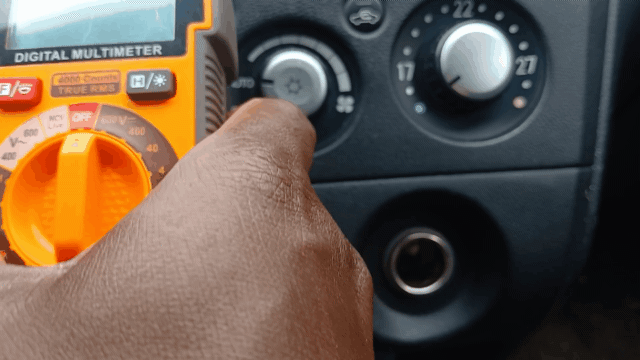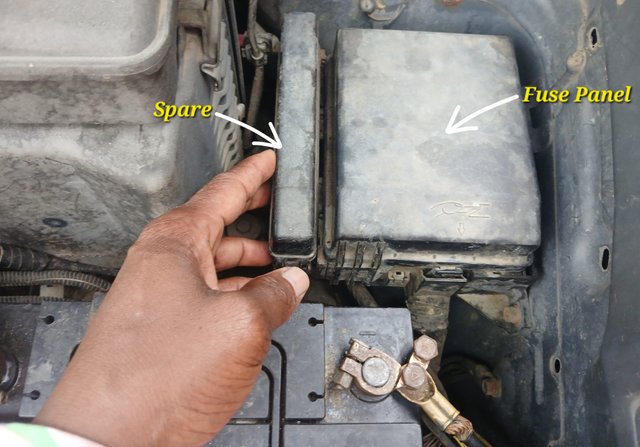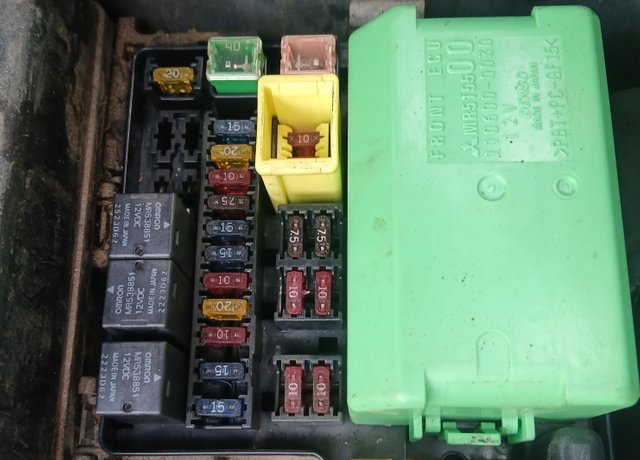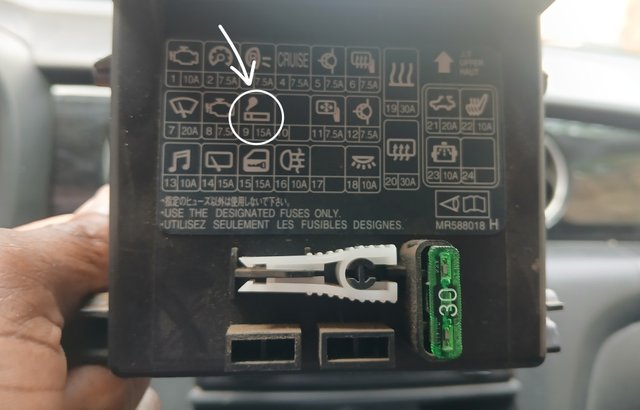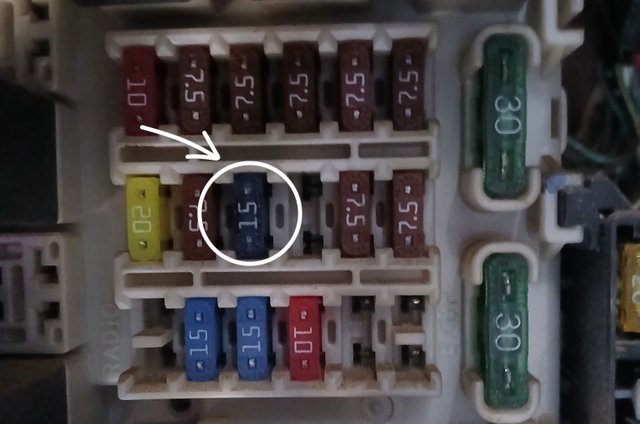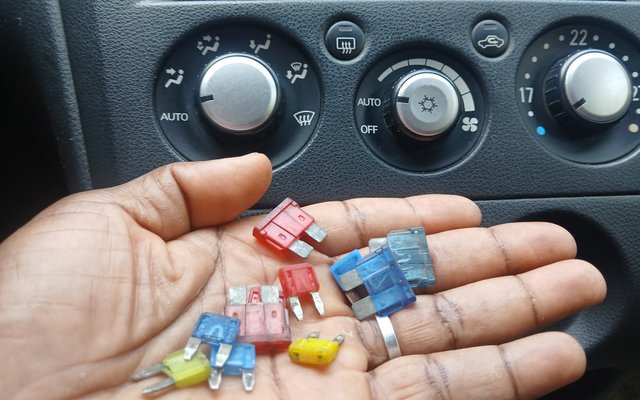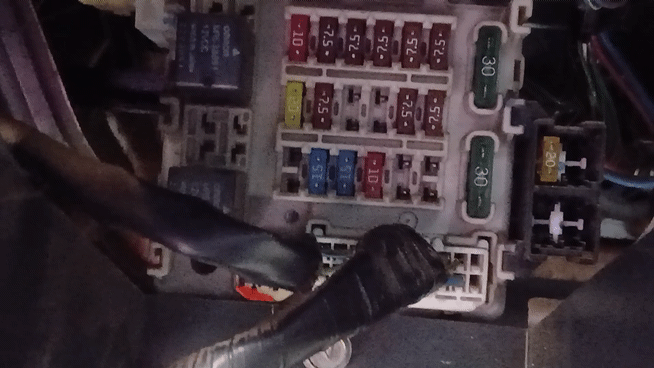Troubleshooting the Mitsubishi Outlander's 12v port
 Confirming the absence of power
Confirming the absence of power
Troubleshooting
The 12volte power outlet in most cars came with an ashtray; the outlet was used to power a cigarette lighter, and the ashtray was for the resulting ash.
That same outlet on modern vehicles is used to power phone chargers, MP3 players and radios.
While I was trying to power the phone, I noticed the port was not working. To be sure the fault was not from the car charger, I riched out for the cigarette lighter, popped it in and it failed to stick and glow.
My troubleshooting mode kicked in; I needed to isolate the problem by eliminating items from the list of possible suspects. At this time the car charger was already exonerated because it worked in another car. The battery was also acquitted because it started the car. I was left with the 12v port, the connecting cables and the fuse.
I pulled out the meter and set the function to DC with the range of 40. I connected the positive probe inside the socket and the negative by its silver side. There was no reading at all.
Testing the fuse:
As a circuit protection component, It is easier to test the functionality of a fuse compared to tracking the wiring which will require a circuit diagram. In most cases, such a fault comes from a blown fuse.
Where is the fuse?, What does it look like?
Once you open into the bonnet of a Mitsubishi Outlander 2005 edition, you have a fuse panel located about halfway in at the right side of the engine compartment.
While the main fuse panel is the larger box to the right, the smaller box is for the spare fuse. The idea of a spare is just brilliant. Imagine blowing the fuse for your headlights at night in the middle of nowhere. In such a situation, the spare fuse compartment becomes a lifesaver.
this fuse panel in the engine compartment houses fuse that are critical engine related, like the anti-lock brake pump and engine control unit
The legend for this fuse panel reveals that there is no fuse for the 12volte port in this panel. And that is when I remembered another fuse panel inside the car, located close to the driver's left knee.
I now found the fuse, in the legend in this fuse panel. Identified as fuse 9, with a maximum load of 15 Amps. The type of fuse is an APM 15Amps mini-blade fuse. Identifying and replacing a fuse is a very delicate task. You must replace a blown fuse with the exact type and rating, or else you will be creating more problems for the car's electrical system.
This is the legend for the internal fuse panel. The fuse with the circle is today's target; It has the icon of a smoking cigarette. The white clipper is used to facilitate removing and re-inserting of the fuse. In the spare section, you can see two empty holders for the mini-blade fuse. One 30 Amps standard blade fuse is still available.
At this point, it was obvious that all the 15A replacement fuse were used, so I had to buy some. This took me to a car spare part shop where I got the 15Amps mini-blade fuse and some extra to keep as spare.
Replacing the fuse
Using the provided clipper, I grabbed the new fuse and plugged it into its socket. Note that there is no room for a mistake. You must put it in the correct socket.
After replacing the fuse with the same type and rating, it was obvious that the problem was resolved. The multimeter could now detect 12.53 volts of direct current from the battery and the phone charger was buzzing with light.
Conclusion:
Now the 12volt port is up and running. Phones and other devices can be charged on the go. Just knowing that the port is in good condition feels good enough.
Media Credit |
|---|
| Composer | @manuelhooks |
|---|---|
| Captured with | GalaxyA15 |
| Edited with | Canva App |
| Type | Freelance Post |
| (@) 2025 |
#steemexclusive #diy #electronics
#burnsteem25 #club5050
#nigeria #fintech
#writing
